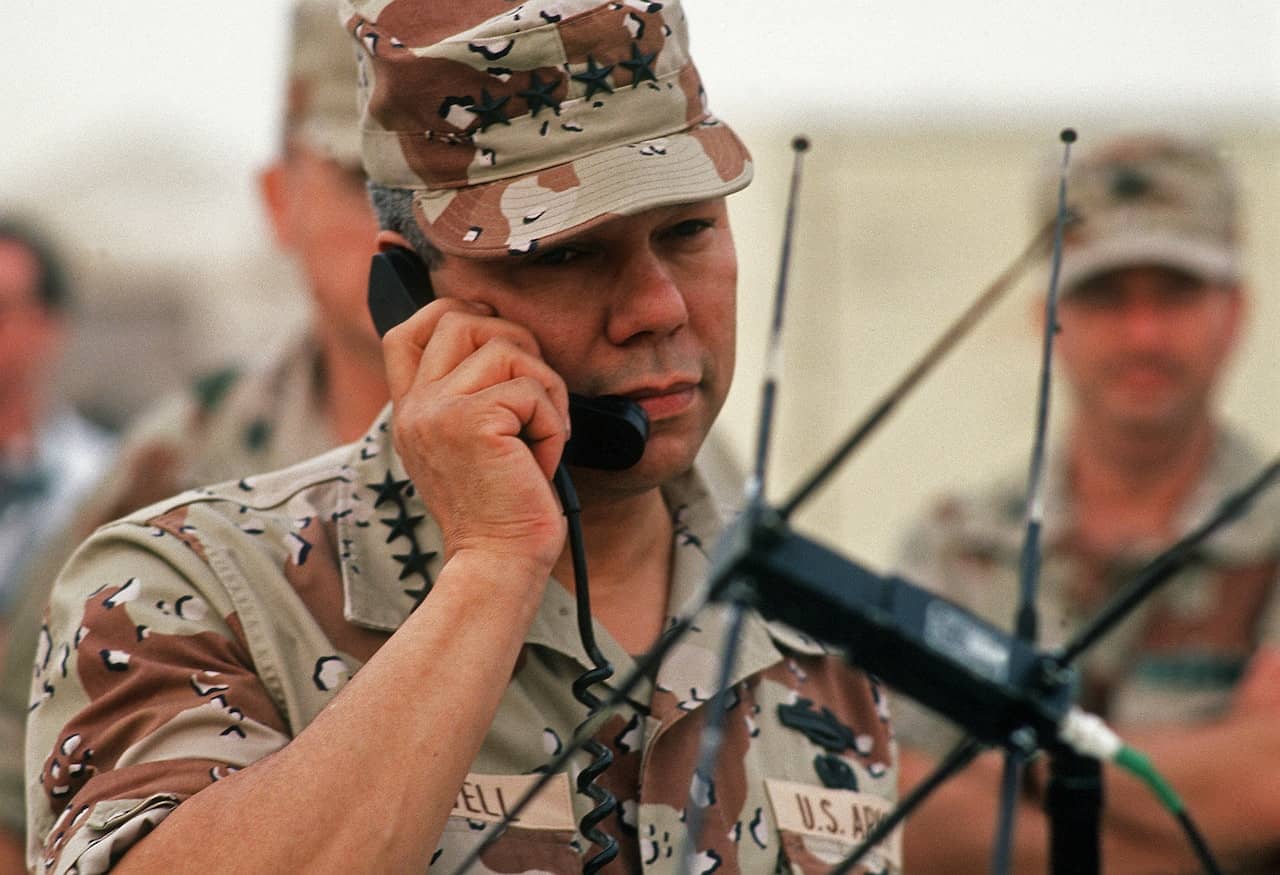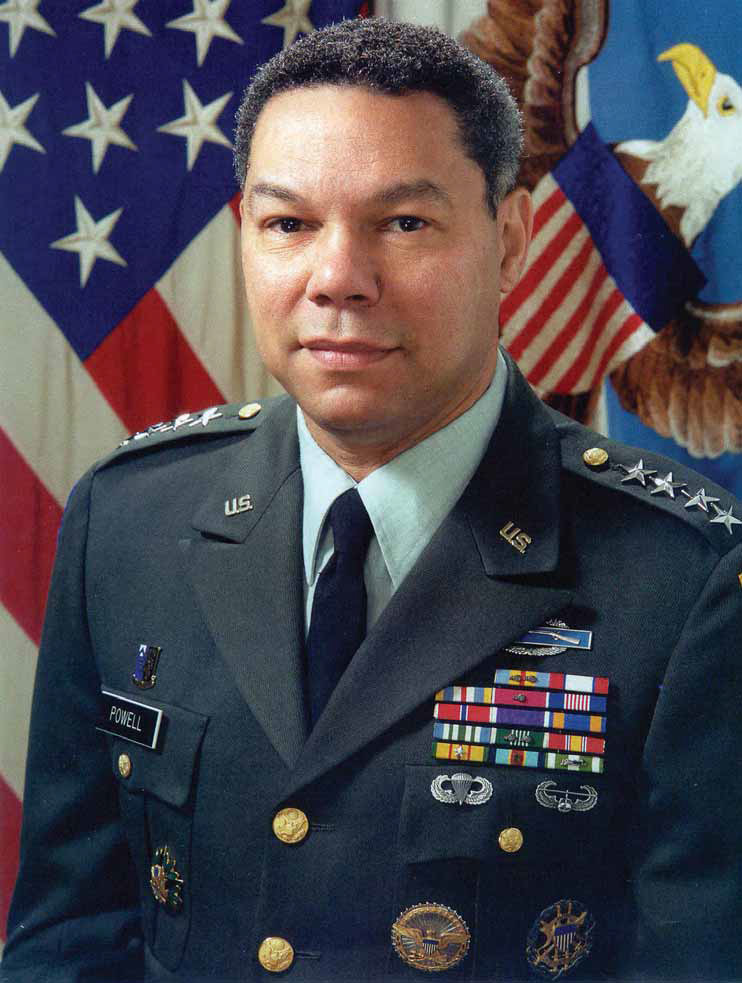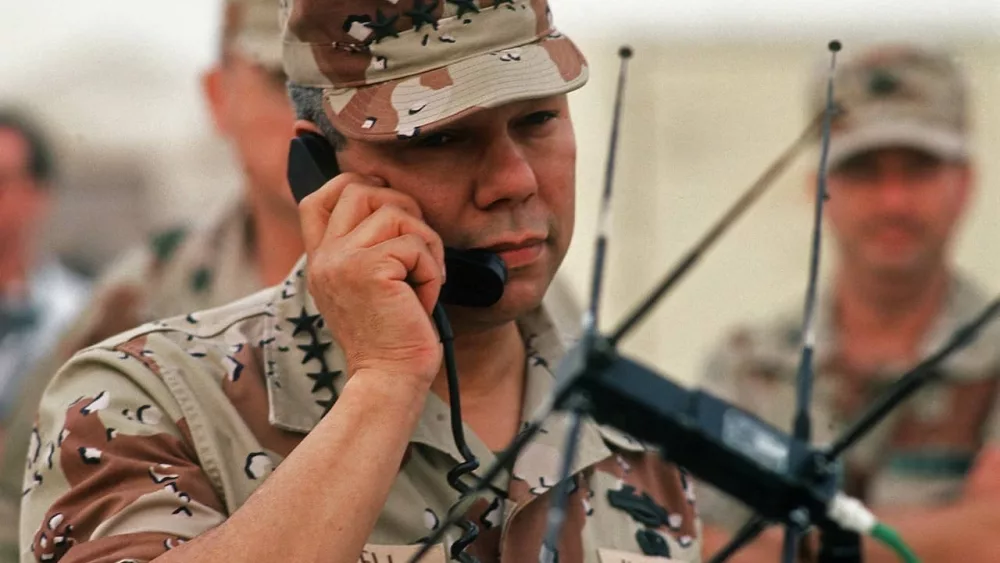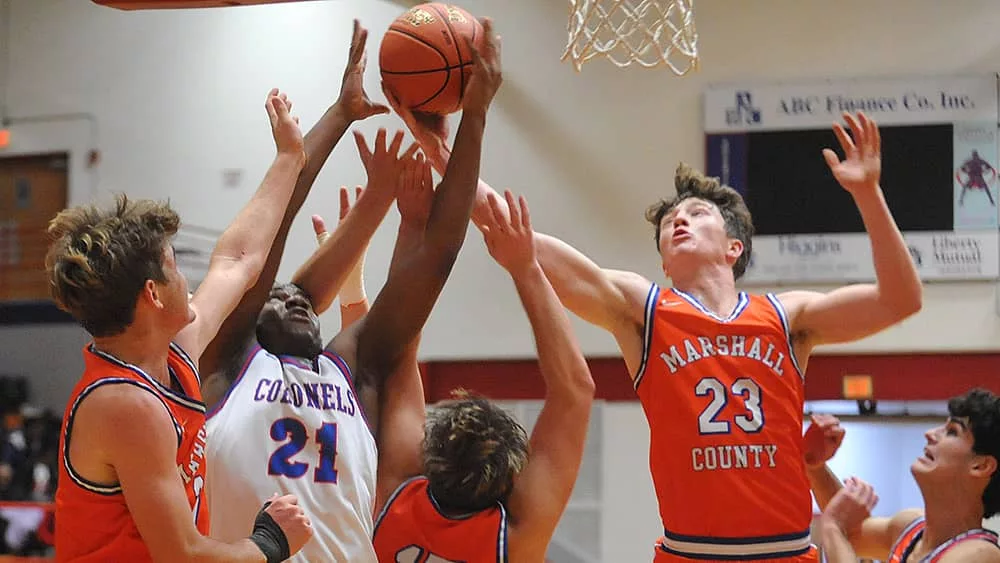
In the wake of his death, Colin Powell’s accomplishments and imperfections come clearly into focus.
A Harlem native and beloved son of Jamaican immigrants, the former American statesman, diplomat and four-star general served as the nation’s 16th national security advisor from 1987-89, as the 12th chairman of the Joint Chiefs of Staff from 1989-93 and as the country’s first-ever Black man to be named US Secretary of State — when he came out of retirement and was tabbed under the George W. Bush administration from 2001-05.
Following the post-9/11 invasion of Iraq, Powell himself called the failure to locate weapons of mass destruction a “painful blot” on his record, and added that he deeply regretted his presentations and acknowledged that those who provided the US with such intel were wrong — before announcing his resignation from the post.
But before national security advisor, before chairman of the Joint Chiefs of Staff, before U.S. Secretary of State…Colin Luther Powell served one year at Fort Campbell Army Post as its commander of the 2d Brigade, 101st Airborne Division (Air Assault).
From April 1976 to July 1977, Powell, his wife, Alma, and three children — Michael, Linda and Annemarie — were well-woven into the west Kentucky fabric.
Powell deeply discussed his time on post through two co-written autobiographies — “An American Journey” with Joseph E. Persico in 1995, and “It Worked for Me: In Life and Leadership” with Tony Koltz in 2012.

Among his reflections, Powell remembers when General John A. Wickham — a future U.S. Army Chief of Staff from 1983-87 — selected him to serve as Fort Campbell’s president on its school board.
Powell writes: “This put the [my] children on the spot. Not only was their old man the brigade commander, he was also the guy who hired, fired, and paid their teachers.”
During their one year on post, Powell noted his kids turned out to be good students. Annemarie started first grade. Mike became a star catcher for the junior high team. Linda showed an aptitude for music and took to the flute, while a sixth-grade teacher — Betty Querin — proved so influential, the two remained close friends.
Meanwhile, Powell and his wife turned their spiritual efforts to an unnamed Episcopalian church and congregation.
“Life was good at Fort Campbell, although we had to do a little restructuring,” Powell wrote. “We found only a tiny Episcopal congregation, without an organist for the hymn-singing or a cross for the processions. Alma and I worked with the Episcopal chaplain to find other communicants on the post, many of whom had slipped into the inactive reserve. We sat down over several nights and wrote notes, inviting them to get active again. We located a pianist and a processional cross and conscripted our kids once more as acolytes. The congregation began to grow, and we found our faith anchored once again.”
In a May 30, 2012 article by the Fort Campbell Courier, author Megan Locke Simpson captured Powell’s book tour visit to Fort Campbell, in which the four-star general also expressed strong thoughts about the post.
“The only part [of post] that I truly recognize is the wooden barracks where the 2d Brigade used to be,” Powell said. “We went to look at the housing area where we lived — it’s gone. The house is gone. I used to live at 1560 Cole Park…right down the hill from the log cabin where the General, CG, used to live.”
Powell died Monday at age 84. His autobiographies are widely-available for purchase in regional bookstores and online distributors.
Other notable excerpts from Powell’s “An American Journey”:
“The 101st had a unique mission, helicopter-borne assault, and General John A. Wickham (future U.S. Army Chief of Staff 1983-87) was its apostle. The division was the only air assault unit in the world combining light infantry battalions and helicopter battalions to move them swiftly around the battlefield. We were airborne, but not paratroopers. And we certainly were not heavy armor. Consequently, we took flak from both sides.”

“The men of the 2d Brigade, however, were in World War II, two-story, uninsulated barracks heated by one oil furnace in a corner of the first floor. If your bunk was near the furnace, you received the promised 68 degrees. But the farther away you were, the less correlation there was between the thermostat setting and the temperature. And it gets cold in Kentucky in the winter.”
“More important than flute lessons, Linda received the greatest educational gift at Campbell: a teacher who made a difference. Betty Querin taught sixth grade and possessed the rare capacity to communicate with budding teenagers. The middle child often occupies an anomalous position between the first-born and the baby, and Linda found that with Betty she could share her innermost feelings. This teacher awakened my daughter intellectually, and to this day they remain close. Every child deserves at least one Betty Querin.”
“My kids were turning out to be good students, including Annemarie, who began first grade at Fort Campbell. Mike became the star catcher on the junior high baseball team, which allowed me to bask a bit. Linda showed an aptitude for music. At first, we rented a flute for her from the school. She progressed quickly, and the teacher recommended that Linda have a flute of her own. Ever the dutiful father, I scanned the ‘For Sale’ section of the Post Daily Bulletin and parted with $25 for a used flute. Linda was appalled. Alma was appalled. So was the flute teacher. This instrument leaked more air than a ’72 Vega with 100,000 miles. We bought her a better flute. She continued to excel, and the flutes improved. She topped out, fortunately, before we reached the $25,000 gold top-of-the-line model.”






